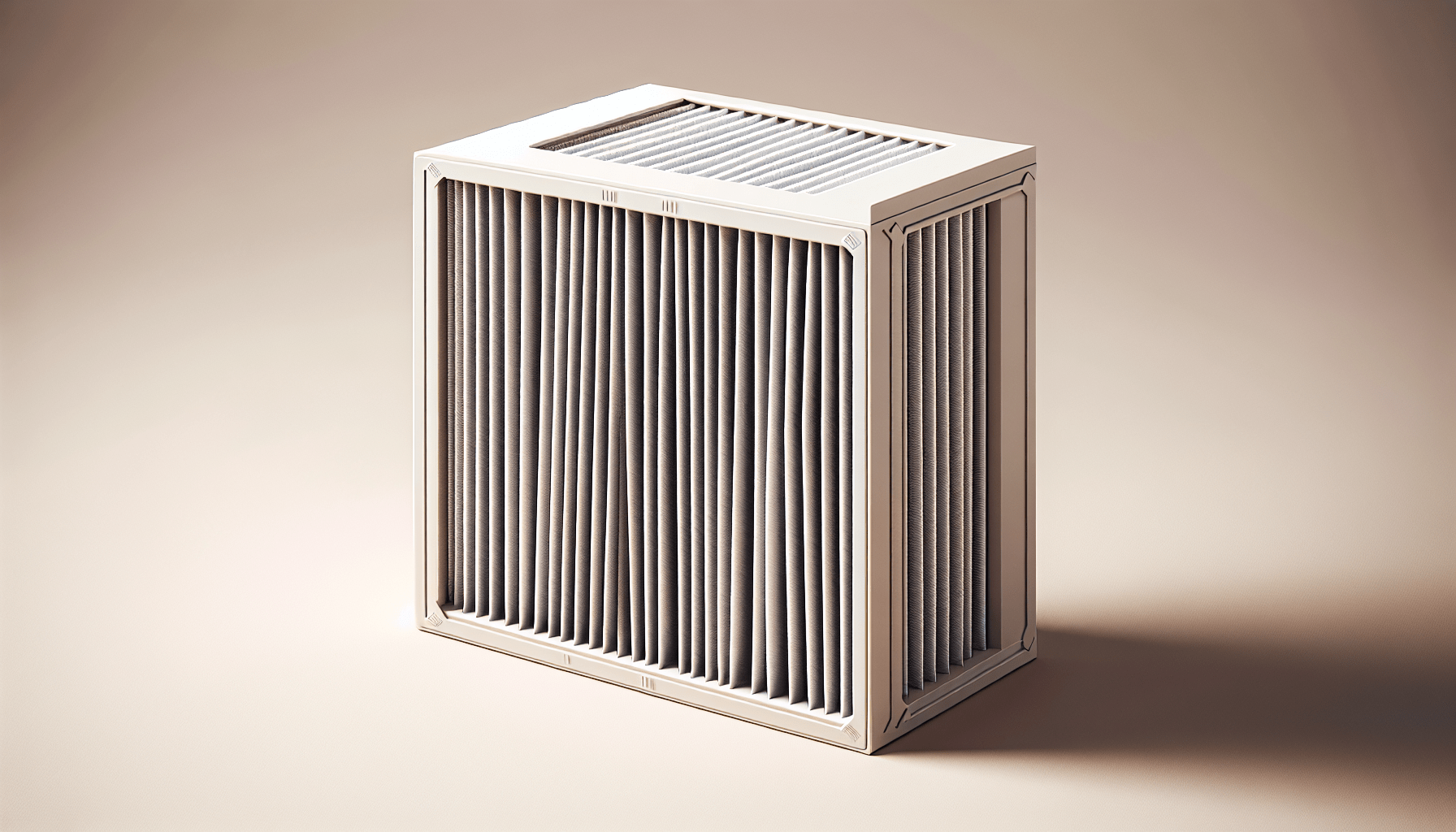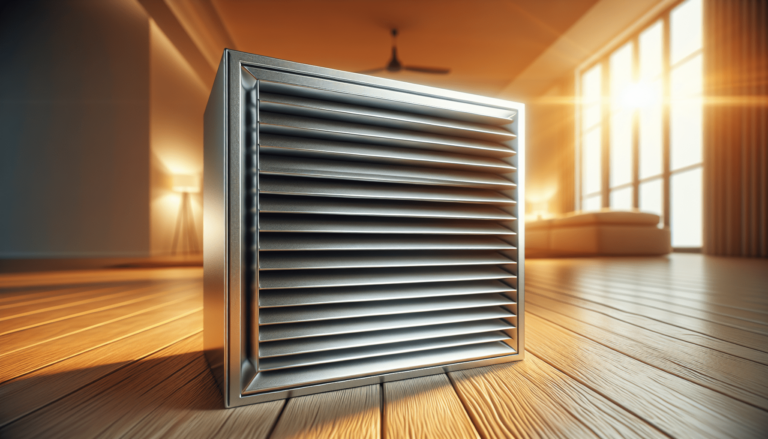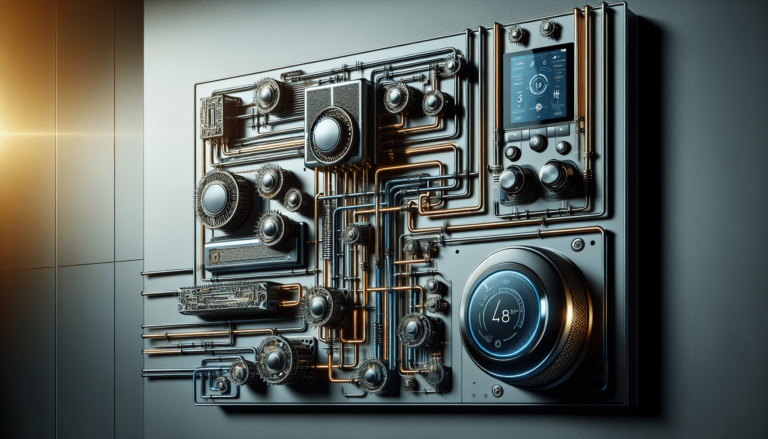

HVAC Services
Get Professional Repairs From The Area's Trusted HVAC Technicians. Ask About Our Services! We Offer Professional Heating & Cooling System Repairs And Guarantee Long-Lasting Results.
Got Question? Call us: (850) 678-2665Financing
A Guide To HVAC Filters: Ratings And Replacement
Ever pondered what stands between you and all the airborne horrors in your home? Discover the unsung hero, your HVAC filter, in this guide on ratings and replacements.

Have you ever wondered what stands between you and all the airborne allergens, dust, and other small particles floating around in your home? It’s your HVAC filter. The unsung hero of your household’s heating, ventilation, and air conditioning system, HVAC filters are crucial for maintaining indoor air quality. Knowing what HVAC filters do, how they’re rated, and when to replace them can make a significant difference in your living environment.

Understanding HVAC Filters
What is an HVAC Filter?
An HVAC filter is a component of your heating and cooling system that traps dust, pollen, mold, and other particles in the air before it circulates through your home. Think of it as the bouncer at the door of your home’s micro-climate nightclub—it keeps the bad stuff out, letting the good, clean air circulate freely. Different types of HVAC filters cater to various needs, so understanding them can help you choose the best one for your household.
Types of HVAC Filters
There are several types of HVAC filters available, each with its pros and cons. Let’s break them down:
Fiberglass Filters
Fiberglass filters are the cheapest option, made of layered fiberglass fibers and typically having a lower MERV rating. While they’re easy on your wallet, they aren’t great at trapping smaller particles.
Pleated Filters
Pleated filters have a larger surface area due to the folds in the material. These filters are better at capturing more types of particles and generally have higher MERV ratings. The pleats increase the surface area, which means they can capture more debris.
Electrostatic Filters
Imagine a filter with the superpower of static electricity. Electrostatic filters use static charge to attract and capture particles. They’re washable and reusable, which can be a big plus for eco-friendly households.
HEPA Filters
When you hear the term “HEPA filter,” think high efficiency—these are the gold standard in air filtration. While they can trap 99.97% of particles that are 0.3 microns or larger, they may not be compatible with all HVAC systems due to their high resistance.
Carbon Filters
These filters use activated carbon to tackle gases and odors. They’re great if you have pets or if someone in the house smokes. However, they should be replaced regularly to maintain effectiveness.
HVAC Filter Ratings
Understanding MERV Ratings
MERV stands for Minimum Efficiency Reporting Value. The rating scale ranges from 1 to 20 and indicates how effectively a filter can capture particles of different sizes. Here’s a quick guide:
| MERV Rating | Particle Size | Typical Use |
|---|---|---|
| 1-4 | >10.0 microns | Residential Basic, Pollen, Dust Mites |
| 5-8 | 3.0-10.0 microns | Improved Residential, Mold Spores, Pet Dander |
| 9-12 | 1.0-3.0 microns | Superior Residential, Legionella, Humidifier Dust |
| 13-16 | 0.3-1.0 microns | Hospital Labs, Smoke, Bacteria |
| 17-20 | <0.3 microns | Clean Rooms, Radioactive Material |
Choosing the right MERV rating depends on your needs. If your main concern is allergies, you might opt for a rating between 9 and 12. For general household use, a MERV rating from 5 to 8 should suffice. Just keep in mind that higher-rated filters may require more energy to push air through.
Other Rating Systems
While MERV is the most commonly used rating system in the U.S., you might also encounter other ratings if you’re shopping internationally. The European equivalent is the EN 779 rating, while Japan uses the JIS rating system. These ratings serve the same purpose but use different scales and standards to measure effectiveness.
Choosing the Right HVAC Filter
Assess Your Needs
Start by assessing your household’s specific needs. If you have pets, you’ll likely want a filter that excels at capturing pet dander. If someone in your home has allergies, a higher MERV rating can improve air quality. Identify what’s most important for you before making a decision.
Consider Your HVAC System
It’s also crucial to consider the compatibility of the filter with your HVAC system. High-efficiency filters like HEPA can restrict airflow, which could put a strain on your system. Check your HVAC system’s specifications to find out what types of filters it can handle.
Cost vs. Benefit
There’s also the cost factor. While more efficient filters can be pricier, they might save you money in the long run by improving air quality and reducing strain on your HVAC system, thus extending its lifespan. Balancing the initial investment with long-term benefits is key.
How to Replace HVAC Filters
Tools You’ll Need
Before you jump into replacing your HVAC filter, gather a few essential tools: gloves, a screwdriver if needed, and of course, the replacement filter. You might also want a marker to note the date on the new filter, which will help remind you when it’s time for the next change.
Step-by-Step Guide
- Turn Off Your HVAC System: Safety first. Make sure your system is off before you start.
- Locate the Filter: Most filters are found near the return air duct or in the blower compartment.
- Remove the Old Filter: Slide out the old filter carefully to avoid spreading dust.
- Inspect the New Filter: Ensure the new filter is the correct size and type.
- Insert the New Filter: Follow the airflow arrows on the filter to install it correctly.
- Turn Your System Back On: Your HVAC system is now ready to run smoothly with the new filter.
Setting a Replacement Schedule
How often you need to replace your HVAC filter largely depends on the type of filter and your household conditions. Here’s a general guide:
| Filter Type | Replacement Interval |
|---|---|
| Fiberglass | 30 days |
| Pleated | 90 days |
| Electrostatic | Wash monthly, replace annually |
| HEPA | 12-18 months |
| Carbon | 3-6 months |
Always check the manufacturer’s guidelines for the most accurate information.

Impact of Not Replacing HVAC Filters
Reduced Efficiency
Neglecting HVAC filter replacement can severely impact your system’s efficiency. A clogged filter forces the system to work harder, which can result in higher energy bills and a shorter lifespan for your HVAC unit.
Health Concerns
Dirty filters allow pollutants to circulate through your home, which can aggravate allergies, asthma, and other respiratory conditions. Maintaining a clean filter is essential for keeping your indoor air quality at its best.
System Breakdowns
An overly dirty filter can even lead to system breakdowns. The added strain on your HVAC unit can cause parts to wear out faster, leading to costly repairs. Prevention is always better—and cheaper—than the cure.
FAQs
How do I know what size filter to buy?
Finding the right size filter is crucial for proper functionality. Usually, the size is printed on the side of your old filter. If not, measure the length, width, and thickness to get the correct dimensions.
Can I clean and reuse my HVAC filters?
Most disposable filters are not designed to be cleaned and reused. Electrostatic filters are an exception—they can be washed and reused, but should still be replaced eventually.
What if I’m unsure about the compatibility of a filter with my HVAC system?
When in doubt, consult your HVAC system’s manual or contact a professional for advice. Making the wrong choice can lead to inefficiencies or even damage to your system.
Is there a difference between air filters and furnace filters?
In essence, there’s no difference; both terms are often used interchangeably. However, context matters—air filters generally refer to filters used in AC systems, while furnace filters are specifically for heating systems.
Do higher MERV ratings mean lower energy efficiency?
Not necessarily, but higher MERV-rated filters can cause reduced airflow if not compatible with your system, leading to increased energy consumption. Always check your system’s recommendations for the most suitable MERV rating.
Conclusion
Your HVAC filter plays an instrumental role in maintaining the air quality of your home and the efficiency of your HVAC system. With a variety of filter options and ratings available, it’s vital to assess your specific needs and choose an appropriate filter. Regular replacement keeps your air clean and your system running smoothly, sparing you from costly repairs and health issues down the line.
If you still have questions or need assistance, don’t hesitate to contact us at Tempacure Heating and Air Conditioning.
Here’s to breathing easily—as they say, health is wealth, and in this case, it all starts with a simple yet mighty filter.







